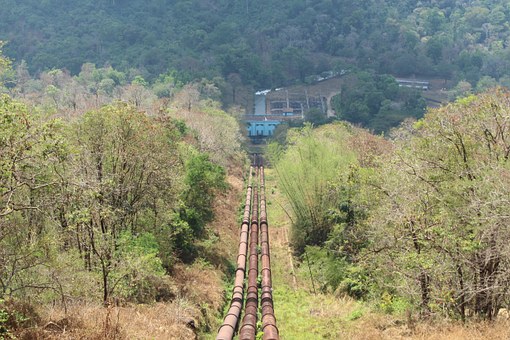FERC Updates Policy for Natural Gas Project Reviews

The Federal Energy Regulatory Commission on Feb. 17 issued two policy statements intended to enhance the legal durability of its natural gas project certifications and decisions. The first one, an update to the 1999 policy for the certification of new interstate natural gas projects, incorporates landowner protections and environmental justice considerations in the decision-making process. The accompanying interim greenhouse gas policy statement details how the commission will assess the impacts of natural gas infrastructure projects on climate change in its reviews. The new policies apply to both pending and new applications.
The updated certification policy details how the agency will execute its public interest obligations under the Natural Gas Act in evaluating interstate natural gas certificate applications. The agency intends to consider both economic and environmental impacts of a proposed project, including a “robust consideration of impacts to landowners and environmental justice communities.” The agency will have the authority to reject an interstate pipeline or liquefied natural gas export project application if negative effects outweigh project benefits and cannot be mitigated.
According to the commission, projects with more adverse effects on the environment, landowners, and environmental justice communities will require greater effort to counter any adverse effects. Under the 1999 policy approach, offtake agreements between the applicants and shippers, known as precedent agreements, were essentially the primary factor in determining the need for the project. The agency revised its policy considering several recent court rulings that faulted the commission for relying solely on precedent agreements to determine public need, especially those offtake agreements that developers reach with affiliated companies. FERC initiated a review of the certification process in 2018 amid an unprecedented flurry of pipeline approvals that drew opposition from landowners and environmental groups. The updated policy calls for further explanation from applicants such as the intended end use of the gas. In evaluating the need for the project, the commission may consider other evidence, including demand projections, estimated capacity utilization rates, potential cost savings to customers, regional assessments and statements from state regulators or local utilities.
The interim GHG policy statement clarifies how GHG emissions will be addressed for proposed pipeline and liquefied natural gas projects under the Natural Gas Act and the National Environmental Policy Act. The new policy sets an emission threshold of 100,000 metric tons per year of carbon dioxide equivalent, requiring the preparation of an environmental impact statement for proposed projects with emissions above that level.
The commission seeks comments on the interim statement, particularly its approach to evaluating the significance of the proposed project’s contribution to climate change. The statement is subject to changes based on the record developed during the proceeding, but the agency will begin applying the framework in the interim. Comments are due by Apr. 4
EnerKnol Pulses like this one are powered by the EnerKnol Platform—the first comprehensive database for real-time energy policy tracking. Sign up for a free trial below for access to key regulatory data and deep industry insights across the energy spectrum.
ACCESS FREE TRIAL